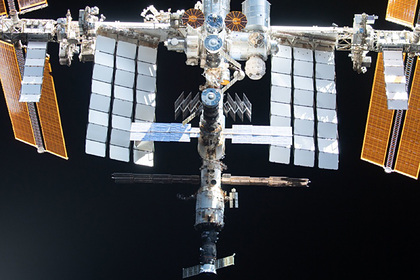NASA: the “leaking” chamber of the Russian Zvezda module on the ISS may be blocked 
In the worst case, the “leaking” intermediate chamber of the service module The “star” of the Russian segment of the International Space Station (ISS) will have to be blocked, which will lead to the loss of access to the docking port for the Progress and Soyuz spacecraft, SpaceNews reports a comment by NASA Assistant Administrator for Space Operations Katie Luders, included in the report of the Office of the General NASA inspector.
According to the document, the cracks are in the “low stress part”, which is a major concern. “In particular, based on the models and dynamic loads of the design mission that NASA used to characterize the structure, cracks should not have occurred,” said the Office of the Inspector General of NASA.
According to Luders, the US space agency and Roscosmos continues to monitor air leaks in the intermediate chamber and hopes to present its findings on this issue by the end of March 2022.
According to the report, if the operation of the ISS is completed in 2030, then the United States should have at least one commercial near-earth station by 2028. It also notes that the latter is unlikely to be launched in 2028, and therefore the ISS should continue to work after 2030.
In August, the General Designer of the Rocket and Space Corporation (RSC) Energia, head flight of the Russian segment of the ISS, cosmonaut, twice Hero of the Soviet Union Vladimir Solovyov said that a possible reason for the leakage in the Russian Zvezda module could be a production error. According to him, during welding, the connecting seams could overheat. In this case, the joints of parts made of an alloy of aluminum and magnesium become porous after a long stay in zero gravity. Overheating could be caused by a welder's mistake, who stayed at one point of the connection longer than necessary. “Vibration and resonance also affect the weld seam, which together can lead to air leakage,” added Soloviev. The corresponding leak at Zvezda was discovered in August 2019.